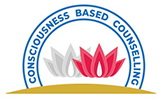Is medication compatible with counselling?
An insight into one’s problems is needed for counselling to be effective that may be absent in certain psychotic states. But that does not mean that a person diagnosed as schizophrenic may not respond to counselling; one might very well respond and co-operate.
In the integral perspective, all problems are viewed at different planes of consciousness. A person may have a very sensitive inner being that responds to positive suggestions, goodwill of the therapist and which is receptive to the Divine Grace while at the same time he or she might have enormous difficulties in the outer being or surface personality that may need medicinal intervention.
A person who has the capacity to be in contact with one’s own soul entity needs sensitive handling if affected. Such a subject would respond to a low dose of medication and counselling in such a situation need only an encouragement to look inwards –the rest follows automatically. In contrast a depressed subject with a dominant “vital” (the repertoire of our emotions and life-energy) needs a different type of handling as he/she has more chance for swinging to a manic state. Again a neurotic or depressed or stress-prone client can have a strong intellectual ego that can pose a queer resistance to therapeutic intervention which needs to be worked through at the level of the ego. There are enormous variations in human nature and the integral perspective acknowledges the great variation needed to handle human issues for truth does not reside in geometrical rigidity and no one school of therapy can be perfect. As such, it has no conflict with either medication or other schools of counselling/psychotherapy. Instead it encourages each school to extend its scope so as to be able to reach the depths of consciousness to the central truth of the being that is the integrating principle of the psyche.
